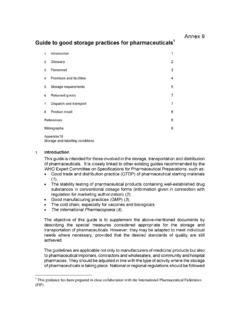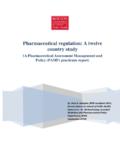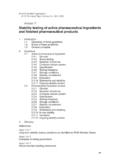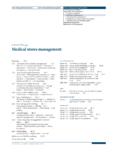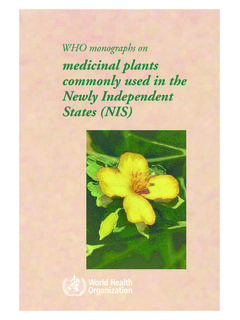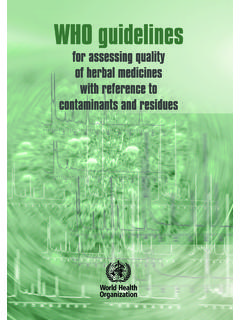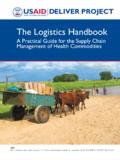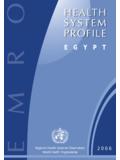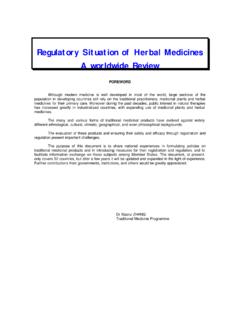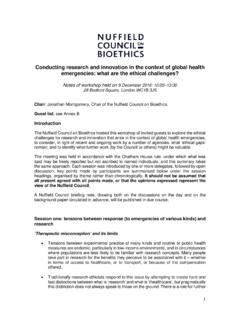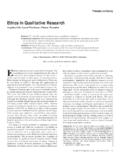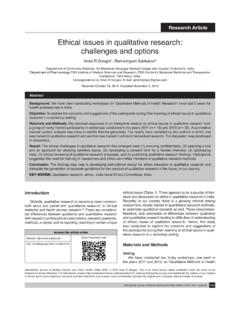Transcription of Ethical challenges in study design and informed consent ...
1 Ethical challenges in study design and informed consent for health research in resource-poor settingsTDR/SDR/SEB/ TOPICS Programme for research & Trainingin Tropical Diseases (TDR) sponsored byU N I C E F / U N D P / Worl d B a n k / WH OWHO Library Cataloguing-in-Publication DataMarshall, Patricia challenges in study design and informed consent for health research in resource-poor settings / Patricia A. Marshall.(Special Topics in Social, Economic and Behavioural (SEB) research report series; No. 5) TDR/SDR/SEB/ . , research . consent . design . countries. I. UNICEF/UNDP/World Bank/WHO Special Programme for research and Training in Tropical Diseases. health Organization. 978 92 4 156338 3(NLM classification: W )ISSN 1683-5409 Copyright World health Organization on behalf of the Special Programme for research and Training in Tropical Diseases 2007 All rights use of content from this health information product for all non-commercial education, training and information purposesis encouraged, including translation, quotation and reproduction, in any medium, but the content must not be changed andfull acknowledgement of the source must be clearly stated.
2 A copy of any resulting product with such content should be sentto TDR, World health Organization, Avenue Appia, 1211 Geneva 27, Switzerland. TDR is a World health Organization (WHO)executed UNICEF/UNDP/World Bank/World health Organization Special Programme for research and Training in information product is not for sale. The use of any information or content whatsoever from it for publicity or advertising,or for any commercial or income-generating purpose, is strictly prohibited. No elements of this information product, in part orin whole, may be used to promote any specific individual, entity or product, in any manner designations employed and the presentation of material in this health information product, including maps and otherillustrative materials, do not imply the expression of any opinion whatsoever on the part of WHO, including TDR, the authorsor any parties cooperating in the production, concerning the legal status of any country, territory, city or area, or of itsauthorities, or concerning the delineation of frontiers and or depiction of any specific product or commercial enterprise does not imply endorsement or recommendation byWHO, including TDR, the authors or any parties cooperating in the production, in preference to others of a similar nature notmentioned or views expressed in this health information product are those of the authors and do not necessarily reflect those of WHO,including TDR.
3 WHO, including TDR, and the authors of this health information product make no warranties or representationsregarding the content, presentation, appearance, completeness or accuracy in any medium and shall not be held liable for anydamages whatsoever as a result of its use or application. WHO, including TDR, reserves the right to make updates and changeswithout notice and accepts no liability for any errors or omissions in this regard. Any alteration to the original contentbrought about by display or access through different media is not the responsibility of WHO, including TDR, or the , including TDR, and the authors accept no responsibility whatsoever for any inaccurate advice or information that is provided by sources reached via linkages or references to this health information and design : Lisa SchwarbLayout: Jocelyne Bruy rePrinted in FranceEthical challenges in study designand informed consent for healthresearch in resource-poor settingsPatricia A. Marshall, Professor of Biomedical Ethics and AnthropologyDepartment of BioethicsCase Western Reserve University School of MedicineCleveland, OH 44106, USAE mail: 1/03/07 10:45 Page iAcknowledgementsThe author is grateful for the ongoing support and advice of Alex Capron, the former Director of Ethics, Trade, HumanRights and health Law, World health Organization, and Johannes Sommerfeld, Scientist and research Manager at theSpecial Programme for research and Training in Tropical Diseases (TDR).
4 The author is very appreciative of the excel-lent review of the two draft Assessment Guides provided by Kate McQueen of Family health International in Durham,North Carolina, and Charles Rotimi, Director of the National Human Genome Center at Howard University in Washington,DC. The author would also like to thank Gail Hughley from the Department of Bioethics, Case Western ReserveUniversity, for her thoughtful editorial assistance. The author is particularly appreciative of the efforts made by thecontributors of the case analyses describing specific Ethical dilemmas confronted by researchers working in diverse cul-tural settings throughout the world. Finally, the author is grateful to the anonymous reviewers for their thoughtfulcomments on an earlier version of this manuscript. The Special Topics in Social, Economic and Behavioural (SEB) Researchare peer-reviewed publications commissioned bythe TDR Steering Committee for Social, Economic and Behavioural research .
5 This issue was prepared in collaborationwith the Department for Ethics, Trade, Human Rights and health Law (ETH), World health Organization (WHO). For further information please contact: Dr Johannes Sommerfeld Manager Steering Committee for Social, Economic and Behavioural research UNICEF/UNDP/World Bank/WHO Special Programme for research and Training in Tropical Diseases (TDR) World health Organization 20, Avenue Appia CH-1211 Geneva 27 SwitzerlandE-mail: phone: (+41) 022 1/03/07 10:45 Page iiTABLE OF CONTENTSEXECUTIVE SUMMARY .. 1 1. INTRODUCTION .. Ethical principals in scientific reseach .. Historical background: declarations, guidelines and policies .. Recent developments .. 92. Ethical challenges IN research design .. 11 Cultural context .. health disparities .. Strengthening the commitment to Ethical conduct in research design .. Collaborative partnership in research .. Capacity building .. Independent Ethical review of protocols.
6 Standard of care and access to fair benefits .. Access to fair benefits .. 203. Ethical CONSIDERATIONS FOR informed consent .. 23 The process of informed consent : cultural and social context .. Comprehension of information .. of risks .. authority for consent to research .. , social position and power inequities .. Preparation and documentation of the consent form .. Language .. Documentation .. 32 4. CASE ANALYSIS: Ethical DILEMNAS IN health RESEARCHIN RESOURCE-POOR SETTINGS ..35 Case 1: Old problems but new challenges : ethics review and informed consent in a clinical trial for HIV/AIDS in China (Gail Henderson and Dongbao Yu) ..35 Case 2: Designing a group-based intervention to promote condom use in HIV serodiscordant couples in three countries: India, Thailand and Uganda(Janet W. McGrath, Moses Kamya, David D. Celentano, and Andrew Fullem) ..38 Case 3: Clinical trial of antimalarial drugs in Kenya (Duncan Ngare) ..41 Case 4: The impact of community dynamics on conducting scientific researchin sub-Saharan Africa (Clement A.)
7 Adebamowo) .. 1/03/07 10:45 Page iiiCase 5: Protecting confidentiality of participants in studies of behaviours that transmit HIV-1 in Russia (Robert Heimer and Olga Borodkina) ..46 Case 6: A study of low birth weight in Madhya Pradesh, India (Ayesha De Costa) ..49 Case 7: Evaluating the natural history of Plasmodium vivax infection in children in Papua New Guinea (Peter Zimmerman and John Taime) ..52 Case 8: Phase III trial of antibiotics to reduce chorioamnionitis-related perinatal HIV transmission in Malawi (Irving Hoffman and Charles Mwansambo) ..54 Case 9: Ethical review of epidemiological health studies in Pakistan: responsibilities ofresearchers for medical care of participants (Asad J. Raja) ..57 Case 10: research and employment opportunities in resource-poor settings (Jeannine Coreil and Gladys Mayard) ..605. RECOMMENDATIONS .. Recommendations for good practice .. Recommendations for research on research ethics ..65 REFERENCES.
8 1/03/07 10:45 Page ivEXECUTIVE SUMMARY This review considers Ethical challenges to research design and informed consent in biomedical andbehavioural studies conducted in resource-poor settings. A review of the literature explores relevantsocial, cultural, and Ethical issues in the conduct of biomedical and social health research in develop-ing countries. Ten case vignettes illustrate Ethical challenges that arise in international research withculturally diverse and public debates concerning the application of guidelines for Ethical conduct in studiescarried out in developing countries are likely to continue as new information becomes in biomedicine, public health , and the social and behavioural sciences confront the chal-lenging task of adhering to national and international regulations in social and cultural environmentsin which Ethical guidelines may not be easily translated or applied. Increased awareness of Ethical con-cerns associated with study design and informed consent among researchers working in resource-poorsettings is needed.
9 But strengthening professional knowledge about international research ethics is notenough. Investigators also require practical advice on the best methods or models for articulating eth-ical guidelines in the field. Empirical research on a wide range of issues relevant to the application ofethical guidelines is needed, including studies of macro social and economic developments that drivethe globalization of the biomedical research enterprise. Technological and financial resources are alsonecessary to build capacity for local collaborators and communities to ensure that results of researchare integrated into existing health systems. This requires collaborative efforts and engaged commit-ment on the part of investigators, funding agencies, policy-makers, governmental institutions, andindustry. Recommendations for researchers and policy-makers concerned about Ethical practices in multination-al studies conducted in resource-poor settings are listed below.
10 Respect the cultural traditions of study populations and communities Respect for cultural traditions builds a foundation of trust between researchers, study participantsand the local community. Researchers should identify concerns that are culturally based and devel-op strategies for addressing them in a meaningful way. If possible, when protocol proceduresrequire a transgression of local traditions and customs, investigators should consider developingalternatives methods for achieving successful results. Strengthen capacity for developing collaborative partnershipsCollaborative partnerships must be strengthened between researchers in resource-rich and resource-poor settings. Capacity building should be a priority. Investigators should make efforts to strength-en the local health infrastructure and to provide for the continuation of effective research inter-ventions and programmes. Collaborative partnerships should be developed between researchers,funding agencies in public and private sectors, governmental institutions, and private industry toconsider seriously methods for reducing health disparities that exist between resource-rich andresource-poor communities.
